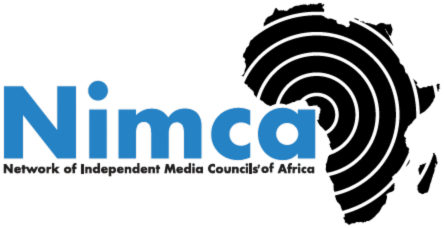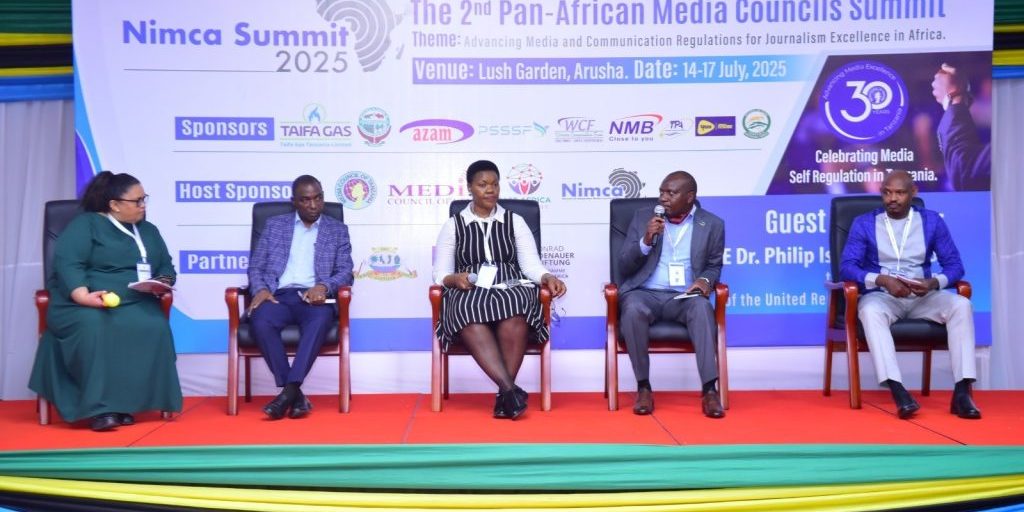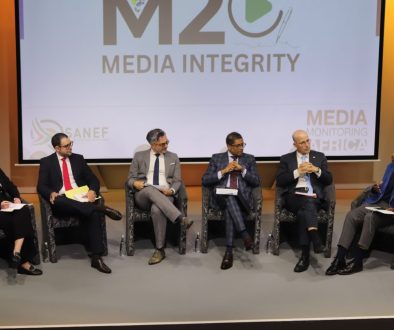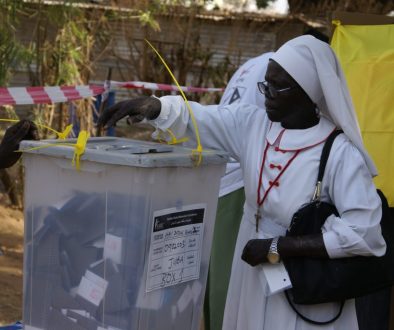Africa’s media regulation ‘must reflect our unique contexts’
 As Africa’s media landscape transforms at pace, sustainable funding for media regulators dominated discussions at the second Pan-African Media Councils’ Summit in Arusha, Tanzania. Leaders and experts from across the continent underscored the pivotal role of media councils and regulatory bodies as cornerstones of democracy.
As Africa’s media landscape transforms at pace, sustainable funding for media regulators dominated discussions at the second Pan-African Media Councils’ Summit in Arusha, Tanzania. Leaders and experts from across the continent underscored the pivotal role of media councils and regulatory bodies as cornerstones of democracy.
Emmanuel Mugisha, Executive Secretary of the Rwanda Media Commission, asserted that governments must prioritise funding for media as a core pillar of governance and public accountability.
‘Just as governments sustain the judiciary and other state institutions, they must bolster media accountability and public interest journalism,’ he declared.
He proposed a media basket fund, potentially supported by telecom giants and tech firms that thrive on media content, to address the steep costs of quality journalism and ensure regulators’ independence.
David Omwoyo, CEO of the Media Council of Kenya (MCK) and East African Press Councils Secretary, showcased Kenya’s hybrid regulatory model, which blends public funding with autonomy. While effective in balancing press freedom and public interest, he acknowledged challenges, including representation and potential conflicts of interest.
‘These are the normal tensions of a thriving democracy,’ Omwoyo affirmed, advocating for funding mechanisms that shield regulators from political influence
Debate also centred on the feasibility of a unified African media regulation framework. An Algerian participant questioned why the continent could not adopt a singular model, to which Omwoyo responded that regulation must reflect unique political and social contexts, rendering a one-size-fits-all approach unworkable.
Instead, he urged countries to secure funding for public interest journalism while safeguarding regulatory independence.
Phathiswa Magopeni, Executive Director of the Press Council of South Africa, stressed the need for unfiltered, professional reporting. She argued that regulation should prioritise content over platforms, particularly in an era of digital media convergence.
Ernest Sungura, Chairman of the Network of Independent Media Councils in Africa (NIMCA) and Executive Director of the Media Council of Tanzania, called for collaboration, ethical standards and a bold Pan-African narrative
Describing the summit, co-hosted by NIMCA and the EAPC, as a ‘clarion call for a new era of media governance’, he urged regulators to champion a fearless, authentic voice that reflects Africa’s diversity and resilience.
In his keynote address, UNESCO Assistant Director-General for Communication and Information Dr Tawfik Jelassi, reinforced the need for enabling legal frameworks and independent regulators to foster ethical journalism.
Highlighting three decades of progress in Africa’s media sector, he stressed that an independent, pluralistic and free press is vital for democracy.
Dr Jelassi called for cross-border collaboration to tackle challenges like AI, misinformation and climate change, warning that ‘trust in media is under global strain as technology reshapes information flows’.
The summit, themed ‘Advancing Media and Communications Regulation for Journalism Excellence in Africa’, was hailed as a transformative movement to elevate journalistic integrity and ensure Africa’s media reflects the aspirations of its people.
PICTURE: Namibia’s Zoe Titus, Tanzania’s Ernest Sungura, South Africa’s Phathiswa Magopeni, Kenya’s David Omwoyo and Rwanda’s Emmanuel Mugisha at the NIMCA Summit in Arusha (EAPC)
This article was first published here



